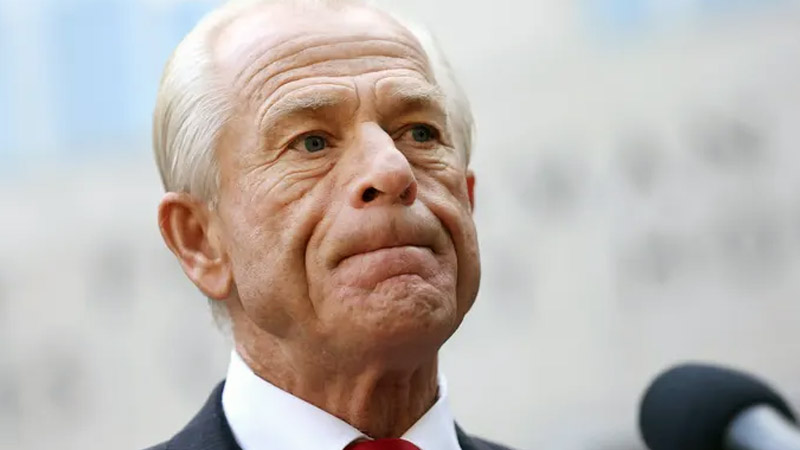Former Trump trade advisor Peter Navarro, recently convicted of contempt of Congress, has filed an “emergency” motion seeking release from his imprisonment. Navarro, who has previously accused CNN of homicide, submitted the plea for a reduced sentence on Thursday, according to various reports.
CBS correspondent Scott MacFarlane brought attention to Navarro’s filing through social media, noting that the defense argues Navarro’s term has been affected by political turmoil. “Former Trump advisor Peter Navarro files emergency motion to get his prison sentence reduced (for release),” MacFarlane tweeted. “Defense argues: ‘Dr. Navarro’s term of imprisonment has been marred by the same political turmoil that gave rise to his prosecution.'”
The filing also outlined personal challenges faced by Navarro in prison, stating that his legal team had been denied the ability to visit him unless they agreed to meet on weekends. Additionally, the defense noted disparities in Navarro’s treatment compared to other inmates. “On a more personal note, defense counsel has been denied the request to visit Dr. Navarro unless they agree to do so on the weekend,” the filing reads.
“Pertinent to the instant motion, upon information and belief, Dr. Navarro is the only prisoner at his facility serving a misdemeanor sentence and the only prisoner not now eligible for early release under the First Step Act of 2018.” The First Step Act, a bipartisan criminal justice reform law enacted in 2018, expanded early release and rehabilitation programs for eligible prisoners. Navarro’s defense team argues that his exclusion from these provisions is unjust, given his misdemeanor conviction, told Raw Story.
Republican political consultant Mike Madrid also commented on the motion, stating that “Peter Navarro is scared silly in that prison cell.” Navarro was convicted on two counts of contempt of Congress for defying a subpoena from the House Select Committee investigating the January 6th Capitol riot. The committee had sought his testimony and documents related to Trump’s efforts to overturn the 2020 election results. Navarro refused to comply, claiming executive privilege, leading to his indictment in June 2022 and subsequent conviction in September 2023.
“He has been denied the opportunity to speak both with the press as well as as a Member of Congress. Indeed, when the Director of the Bureau of Prisons was asked about why a sitting Member of Congress could not speak to Dr. Navarro, he was informed that Dr. Navarro is, ‘too notorious’ to be interviewed.”
“Navarro is imprisoned at the federal facility in Miami. Note that his emergency motion references Rep. Matt Gaetz (R-FL) multiple times,” MacFarlane wrote. “His projected release date is July 17.” The filing also states, “On a more personal note, defense counsel has been denied the request to visit Dr. Navarro unless they agree to do so on the weekend. Pertinent to the instant motion, upon information and belief, Dr. Navarro is the only prisoner at his facility serving a misdemeanor sentence and the only prisoner not now eligible for early release under the First Step Act of 2018.”
The emergency motion seeks immediate release or at least a reduction in Navarro’s prison sentence. His defense argues that the political climate surrounding his case has marred his term of imprisonment, making it unjust and disproportionate.
Navarro’s conviction has become emblematic of the broader legal fallout faced by several former Trump administration officials involved in efforts to overturn the 2020 election. His imprisonment and ongoing legal battles have drawn attention from political analysts and legal experts alike, particularly regarding the treatment of political figures in the judicial system.
The emergency motion’s outcome remains uncertain, but Navarro’s legal team is pressing for a swift resolution. They argue that his exclusion from early release provisions under the First Step Act further exacerbates the unfairness of his imprisonment. Meanwhile, critics point out that Navarro brought these troubles upon himself by refusing to comply with a lawful subpoena.
The broader implications of Navarro’s legal struggles extend beyond his personal predicament. They highlight the legal challenges facing former Trump associates and the judicial system’s role in holding them accountable for their actions surrounding the January 6th Capitol riot and attempts to overturn the 2020 election. Whether the courts will grant Navarro’s emergency release remains to be seen, but his case underscores the tumultuous political environment that continues to shape the American legal landscape.

